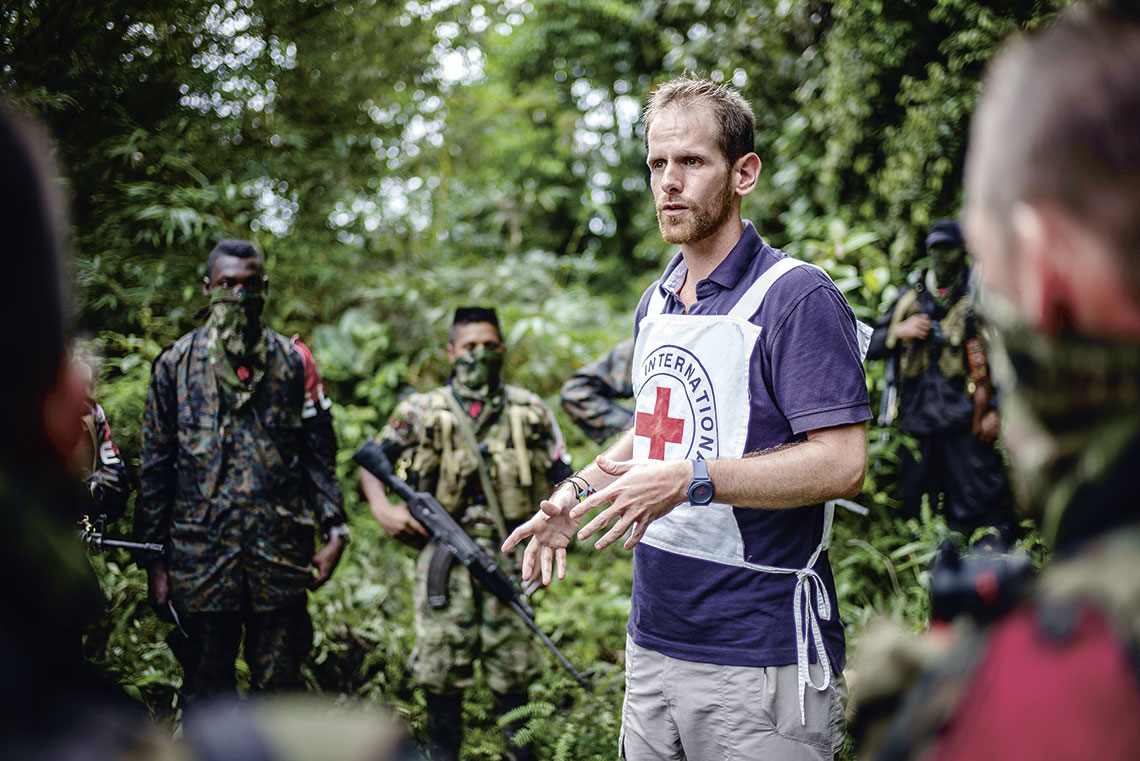Story of discovery
Beyond first aid
Antoinette Mkindo Mbila’s first encounter with the ICRC came in the late 1990s when war broke out in her country, the Democratic Republic of the Congo. She was 18 years old. “The ICRC was helping reunite children separated from their families,” she recalls.
Nearly a decade later when war re-erupted, she saw the distinctive Red Cross emblem in action again. “I remember seeing men with Red Cross vests going into the bush, where a lot of people had fled because of the fighting, and taking out the injured on stretchers.”
Beyond the physical wounds
But as Antoinette got to know the ICRC further, she realized that we were concerned not only with treating the immediate wounds, but also the longer-term physical effects and psychological trauma caused by violence.
Antoinette had already founded an organization to promote women’s health and economic interests. In 2008, she decided to attend one of our courses to raise health and safety awareness among women who had been raped during the conflict.
Since then, Antoinette has trained as a psychosocial assistant and worked as head of a maison d’écoute, a place where women who have suffered from sexual violence can talk about it and receive counselling without fear of recrimination or stigma. “We have received very good training on how to identify the symptoms of sexual violence and come up with solutions,” she says.











